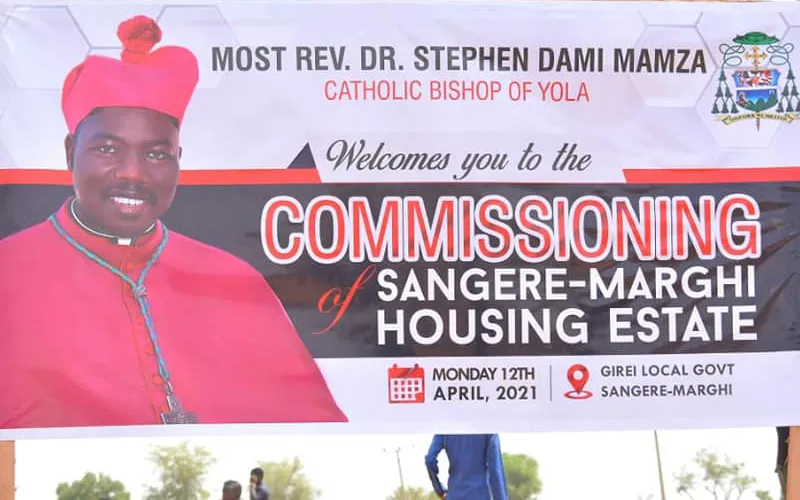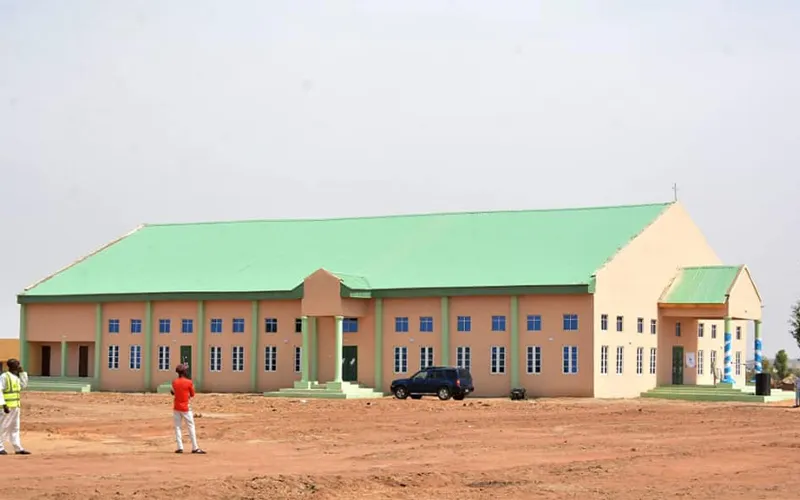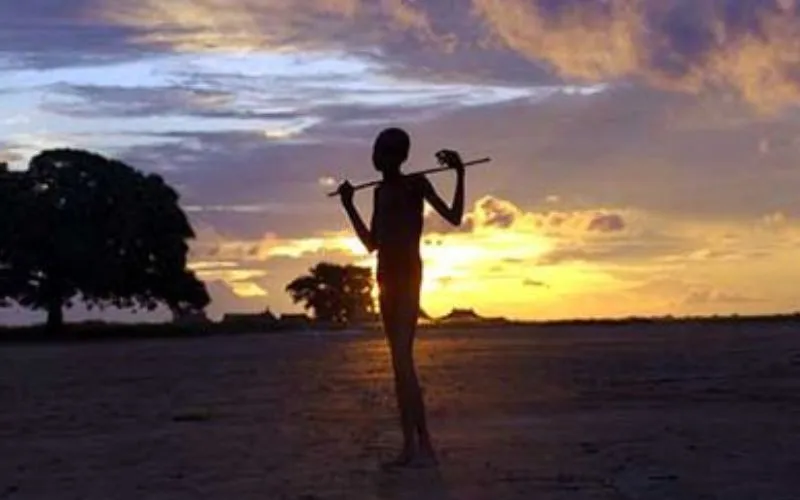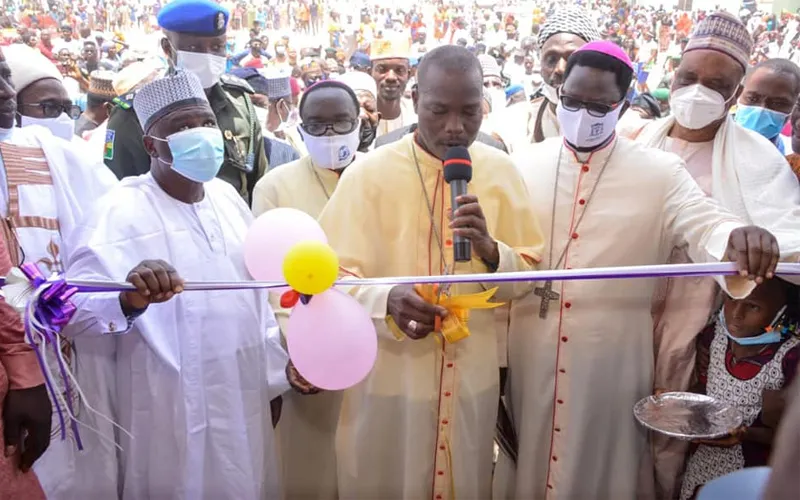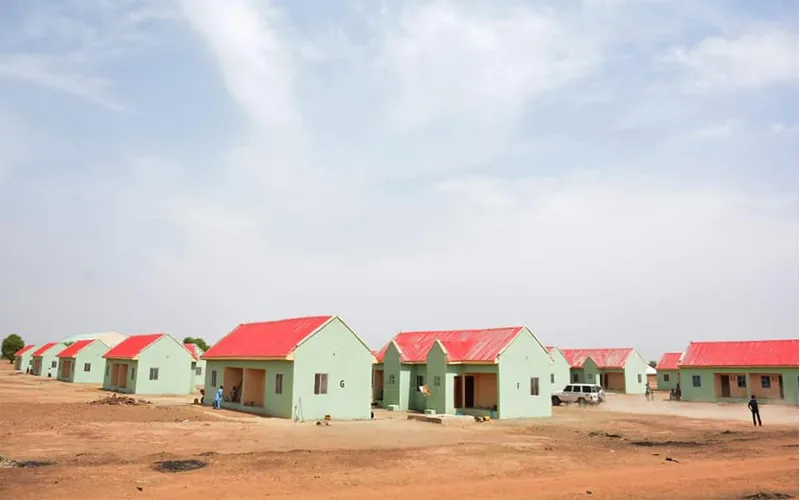Yola, 13 April, 2021 / 3:08 pm (ACI Africa).
There is a need for agencies, be they government or humanitarian, to empower former Internally Displaced Persons (IDPs), according them opportunities for self-reliance, a Nigerian Bishop has emphasized.
Speaking during the commissioning of the Sangere-Marghi IDP Resettlement Estate in Girei Local Government Area of Adamawa State in the territory covered by Yola Diocese, Bishop Stephen Dami Mamza regretted the fact that IDPs are not accorded opportunities to work toward self-reliance.
“We appeal to government and humanitarian actors that displaced persons need to be given opportunities to be productive and self-reliant, as against being passive recipients of aid, which results in dependency syndrome,” Bishop Mamza said during the Monday, April 12 event.
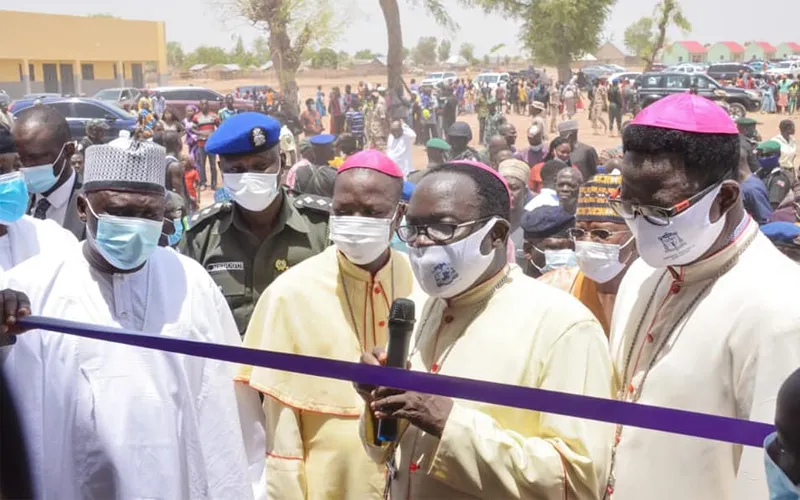
The Nigerian Bishop who has been at the helm of Yola Diocese since April 2011 added that the leadership of the West African country should “treat displaced populations as contributors to local development by giving them access to socioeconomic activity.”



